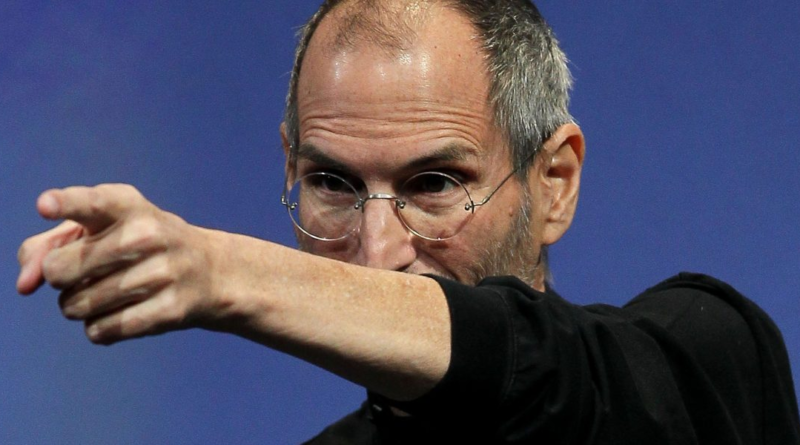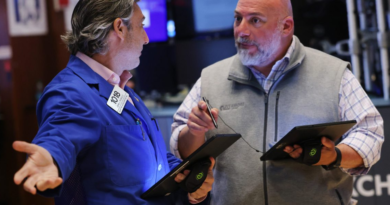Why America should be celebrating entrepreneurs, not presidents
It’s Presidents Day again and–in addition to mattress, appliance, and furniture promotions–commentators will be discussing who America’s greatest presidents have been.
Harvard historian Arthur Schlesinger, Sr. kicked off this conversation in 1948 when he published a presidential ranking in Life magazine. Since then, research and rankings on presidential greatness have bloomed into a cottage industry. Yet, truth be told: Most presidents–like lawyers and lobbyists–do little that directly improves the lives of most Americans. If they don’t make things worse, we consider their presidency a success.
Meanwhile, the entrepreneurs and inventors who do make daily life better are often ignored, or decried as profiteers later in life. Perhaps it’s time to give more credit where credit is due. The Journal of Management History recently published our third decade of research on America’s greatest entrepreneurs. We consulted 50 business and economic historians each decade to develop the rankings. Unlike the finite group of U.S. presidents (Joe Biden is just the 46th), the realm of American business history encompasses millions of stories, providing a rich tapestry of entrepreneurial greatness, ranging from Thomas Edison in the 19th century to Sam Walton in the 20th century to Elon Musk today.
Top 10 entrepreneurs according to economic historians
Edison, who patented the electric light bulb in 1880 during Rutherford B. Hayes’ presidency, has been ranked one of America’s top 10 entrepreneurs in all of our surveys, while President Hayes is consistently ranked in the lower tier of U.S. presidents.
| Ranking | 2001 Expert Ranking | 2011 Expert Ranking | 2021 Expert Ranking |
| 1 | Henry Ford | Henry Ford | Henry Ford |
| 2 | Bill Gates | Bill Gates | John D. Rockefeller |
| 3 | John D. Rockefeller | John D. Rockefeller | Steve Jobs |
| 4 | Andrew Carnegie | Andrew Carnegie | Andrew Carnegie |
| 5 | Thomas Edison | Steve Jobs | Bill Gates |
| 6 | Sam Walton | Thomas Edison | Thomas Edison |
| 7 | J.P. Morgan | Sam Walton | Sam Walton |
| 8 | Alfred Sloan | Walt Disney | Jeff Bezos |
| 9 | Walt Disney | Ray Kroc | Walt Disney |
| 10 | Ray Kroc | J.P. Morgan | J.P. Morgan |
This year’s top-ranked entrepreneurs–as in past years–were predominantly white, Protestant, and male, indicating potential areas for future diversification in our understanding of entrepreneurial success.
Henry Ford, who gave us affordable cars, the 40-hour work week, and “Fordism”–a business philosophy of high wages, high productivity, and mass consumption–continues to claim the top spot. His assembly-line production techniques transformed both manufacturing and American life, making automobile transportation affordable for most families.
Others in the top 10 used the potential of electricity that benefited from Edison’s lighting revolution. The contributions of Steve Jobs, Bill Gates, Jeff Bezos, and Walt Disney built on the shoulders of Edison and his success. The tech business is also an electrical industry. “The past is present,” as the saying goes.
Our rankings for outstanding female and minority entrepreneurs found Oprah Winfrey topping both lists, followed by cosmetics queen Mary Kay Ash, C.J. Walker (who built a Black hair-care empire), and John Johnson, the mid-20th century publisher of Ebony and Jet magazines.
Our panel credited these entrepreneurs with “surmounting prejudices and other barriers based on race or gender.” Ash and Walker “created opportunities for other entrepreneurs” in the cosmetics industry. Almost all the top minority entrepreneurs were African American, with our expert pool seeming to define “minority” as Black. This may change with our next ranking.
Some notable exclusions from our rankings include leaders of vice industries, such as tobacco and brewing, and CEOs who didn’t found their companies. This reflects a historical preference for self-made entrepreneurs. Meta founder and CEO Mark Zuckerberg’s very low ranking (barely mentioned) may position social media as a new vice industry of the Digital Age.
What makes great entrepreneurs vs. what makes great presidents
Surprisingly, “created wealth for shareholders” was not the top factor identified by the historians we consulted. In fact, it ranked dead last. Our historians were more concerned with an entrepreneur’s “ability to imagine or envision the future” and the “impact of [their] product or service in reordering American life.”
Entrepreneurs are being remembered not for the short-term wealth they create, but for the lasting impact of their innovations.
With each survey, our list reflects new entrepreneurs who have transformed American life. Steve Jobs and Jeff Bezos did not appear in our top 10 in 2001, but they do now. And Elon Musk is rising fast at #12.
Even so, the great entrepreneurs of the past–Ford, Rockefeller, Carnegie–have had remarkable staying power. They envisioned the future and made it happen. We still live in the world they created.
Other than the Founding Generation’s presidents–George Washington, John Adams, Thomas Jefferson, James Madison, and James Monroe–whose innovation was a new nation with a new form of government, most highly ranked presidents are celebrated for maintaining the status quo, rather than for entrepreneurial change. Abraham Lincoln saved the Union. Franklin D. Roosevelt marshaled us through the Great Depression and World War II.
Three 20th-century presidents, however, were change agents. Dwight Eisenhower oversaw the creation of the Interstate Highway System, a true American game-changer. Lyndon Johnson launched the War on Poverty and an array of Great Society social programs, which many now blame for weakening Black families and destroying inner-city neighborhoods and communities, such as Tulsa’s Black Wall Street. Ronald Reagan launched the Strategic Defense Initiative, derided by critics as a “Star Wars fantasy,” which created the technology now protecting U.S. allies and troops from missile attack. President Joe Biden wants to be seen as an innovator as well–on green energy. But the jury is still out on that.
We end with a modest proposal: If presidents get their holiday, why not entrepreneurs? Labor Day honors the rank and file, so why not an Entrepreneurs Day to remember those who transform our lives for the better?
Jonathan Bean is a research fellow at the Independent Institute, Oakland, Calif. and professor of history at Southern Illinois University. He is the editor of “Race & Liberty in America: The Essential Reader.” Blaine McCormick is a management professor at the Hankamer School of Business at Baylor University.
More must-read commentary published by Fortune:
The opinions expressed in Fortune.com commentary pieces are solely the views of their authors and do not necessarily reflect the opinions and beliefs of Fortune.




